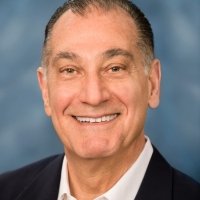Humanitarian Crisis: Impact of Syrian Refugees in Lebanon
A group of experts on Lebanon, refugees, and public policy discussed the effects of the Syrian refugee population in Lebanon.
On October 29, 2013, the Middle East Program at the Woodrow Wilson Center hosted a meeting, “Humanitarian Crisis: Impact of Syrian Refugees in Lebanon,” with Anne C. Richard, Assistant Secretary of State for Population, Refugees, and Migration; Antoine Chedid, Ambassador of Lebanon to the United States; and Ninette Kelley, Resident Representative in Lebanon, United Nations High Commissioner for Refugees (UNHCR). Edward M. Gabriel, former U.S. Ambassador to Morocco and Vice Chairman of the American Task Force for Lebanon, moderated the event. Haleh Esfandiari, Director of the Middle East Program, provided opening remarks.
Gabriel began the meeting by providing context with a series of statistics about Syrian refugees in Lebanon. One year ago, 70,000 Syrian refugees registered by UNHCR were residing in Lebanon. As of last week, 700,000 Syrians had been registered in Lebanon. Currently, there are 4 million Lebanese living in Lebanon, and 1.3 million Syrian refugees reside in Lebanon. Gabriel noted that this rapid percentage increase in the refugee population is a serious burden on Lebanon’s economy and Lebanon cannot afford to increase public debt.
Richard first discussed the devastation within Syria: 100,000 Syrians have died during the civil war; many of whom were civilians have been killed in crossfire and by preventable diseases. According to Richard, more than half of Syrian children no longer attend school. The war may cause a “lost generation” in Syria of children who were not educated and are severely traumatized. The United States recognizes that Lebanon has taken on a great burden while doing the right thing, and the United States is committed to helping Lebanon with aid. Richard stated that broader international support is needed to address the sectors affected by overpopulation such as health, infrastructure, the economy, and education, among others. These short, medium, and long term needs must be addressed to ensure that Lebanon does not collapse under the pressure of the increased population.
Chedid stated that he was presenting “a painful cry on behalf of Lebanon.” Thirty percent of Lebanon’s population is currently Syrian refugees, and Lebanese citizens are worried that the influx of refugees is causing an “existential crisis” in Lebanon. Chedid said that Lebanon will not close its borders to those fleeing the violence in Syria, but the sudden overpopulation has affected nearly every imaginable sector: the economy, trade, public finance, health, education, safety, the labor market, infrastructure, traffic, and waste management. He said the influx of refugees also endangers the internal social balance in Lebanon. Chedid asked that all capable states share the financial burdens of the Syrian refugee crisis.
Kelley began by stating that the Lebanese government and private citizens have been hospitable to the Syrian refugees; Lebanese families have taken Syrian families into their homes when possible. Kelley noted that Lebanon is not even the size of Maryland, yet UNHCR registers between 11,000 and 15,000 Syrian refugees per week. She said this large influx is difficult to accommodate and thus refugees are often living in abandoned buildings without walls or bathrooms, unfinished tented settlements, garages, unfinished sheds, and settlements in flood zones. UNHCR has tried to improve these settlements by finishing the abandoned buildings, sealing off tents, establishing hygiene facilities, and moving settlements to safe grounds. UNHCR recognizes that the Lebanese government faces issues accommodating the Syrian refugees in terms of medicine, water, and education. For example, the Lebanese education system can only accommodate 100,000 of the 300,000 Syrian refugee children, even after some expansions are enacted in the education sector. Kelley indicated that Lebanon’s welcoming of Syrian refugees will not be sustainable because of these economic and infrastructural pressures.
Gabriel asked the panelists to list their policy prescriptions to solve the refugee crisis and prevent Lebanon from collapsing under the strain of the sudden overpopulation. All three panelists agreed that a political solution to the conflict in Syria must be reached. Chedid said that the international community must continue to help Lebanon, and countries that have pledged to donate should follow through with their pledges. Richard stated that access to vulnerable populations still living inside Syria must improve and non-traditional donors, such as Russia, China, and more Gulf states, should contribute aid. Kelley said that donor states should help to develop infrastructure, health, and education in Lebanon.
By Julia Craig Romano, Middle East Program
Speakers


Hosted By

Middle East Program
The Wilson Center’s Middle East Program serves as a crucial resource for the policymaking community and beyond, providing analyses and research that helps inform US foreign policymaking, stimulates public debate, and expands knowledge about issues in the wider Middle East and North Africa (MENA) region. Read more

